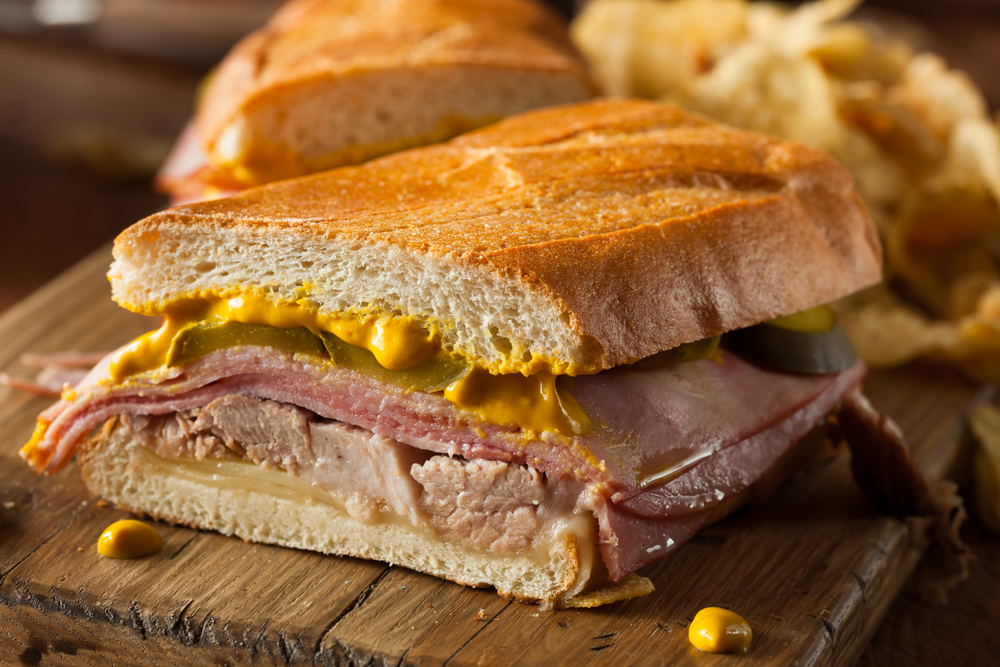In many ways, Cuban cuisine has been misunderstood and somewhat marginalized down to black beans, rice, plantains and the now ubiquitous “Cuban” sandwich. It’s true that the cuisine has deep roots in these staples, but it’s more evolved and exciting than we generally get to experience.
A brief history
Cuban cuisine has played a major role in what pioneering chefs of the early 90s dubbed as South Florida’s “Floribbean” cuisine. Floribbean cuisine, much like the state of Florida itself, is a fusion of various cultures’ influences including Caribbean, Hispanic and Asian.
For many years, small cafes and family restaurants served Cuban food in Miami’s Little Havana, Little River and Hialeah neighborhoods. What made it appealing was the approachability of the dishes, which featured many different comforting flavors.

Cuban food is not driven by strong chilis, hard-to-source ingredients or highly seasoned. It is much more well balanced than that. The largest Island in the Caribbean, Cuba was populated by natives, Africans, Chinese and Western Europeans. These cultures help define the food’s African creole recipes, Spanish cuisine and indigenous ingredients.
Catersource 2020, co-located with The Special Event, is coming up soon! Click here for more information or to register!
Cooking styles
Cuban cooking techniques are rather simple and involve simmering, stewing and deep-frying. The famous Cuban bread was left to the local baker to master as the climate lent itself to the use of lard--not butter--as the base fat. Cuban bread is still considered a daily purchase.
There are few fundamental preparations and seasonings that are fundamental to the cuisine. These items tend to drive the foundational flavor of many dishes:
- Sofrito: A seasoning paste made of tomato, onions, pepper, cumin and garlic
- Recaito: Similar to sofrito, but made with green herbs such as cilantro and culantro
- Mojo: A basic marinade of sour orange juice, garlic and cumin. It can also be as a condiment
- Adobo: A commercial seasoning based on salt, cumin and other dried herbs
These are all used in combination to create flavor. I have some of these recipes listed on our website.
Plantains
There are two ingredients found in Cuban cuisine that are in need of clarification in preparation and complexity. The first is the Plantain.
We see fried plantains on catering menus all the time, and there is no consistency in traditional preparations. Plantains, like bananas, ripen off the tree and change from starchy to sweet and soft. There are several versions of fried plantains prepared from various stages of ripeness.
From Un-ripened Green Plantains
Mariquitas: Thinly shaved and deep long fried strips served as a snack with salt and mojo
Tostones: Double fried smashed disks with a fluffy interior and crisp skin
From Blackened Fully Ripened Plantains
Platanos Maduros: Thick-cut plantains served as an entrée side dish
Plantains that are in between ripeness are really never served.
The Cuban sandwich
The second ingredient worth discussion is the Cuban sandwich, created in Miami or Tampa depending on your views on Genoa Salami. There are many versions of the Cuban sandwich.
The typical approach to the Cuban sandwich on a menu tends to be a combination of roast pork, ham, cheese, pickle mustard and mayo. The key to this is the pork, which is traditionally a mojo marinated pork shoulder or from a whole roasted lechon (whole pig). The other is Cuban bread that is as built as a sandwich and pressed on a tabletop plancha (sandwich press).
There are plenty more variations of the pressed Cuban sandwich that will allow you to expand your offerings and bring some fun stations and small bites to your next event. Be sure to see the list of Cuban sandwiches and traditional dishes on our website.



